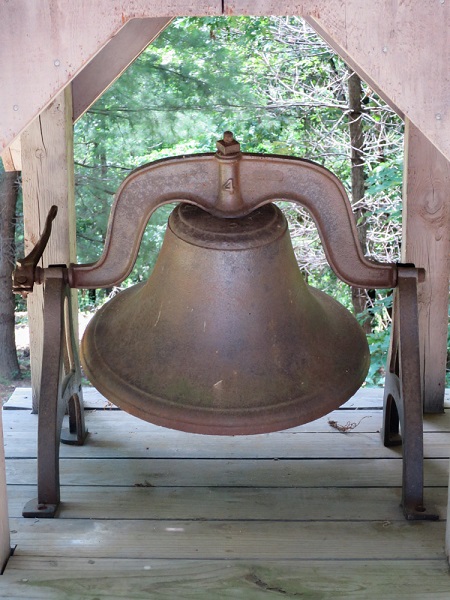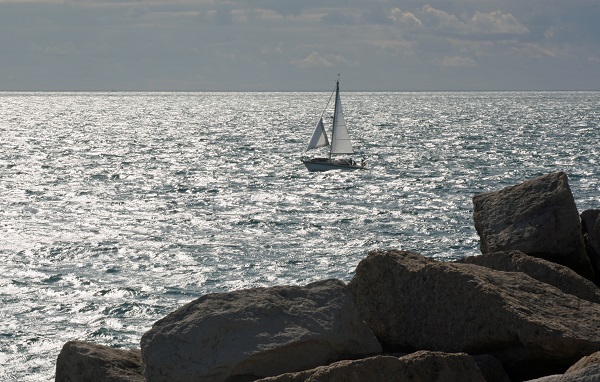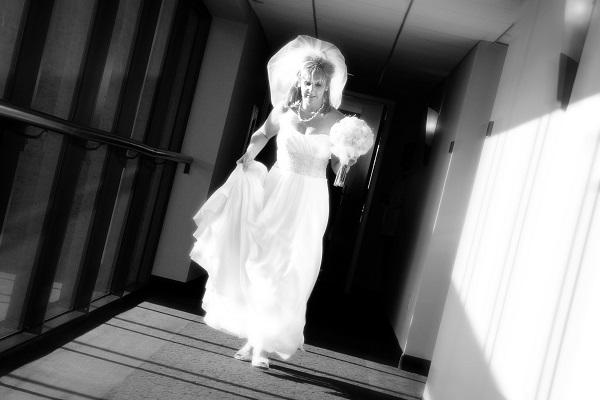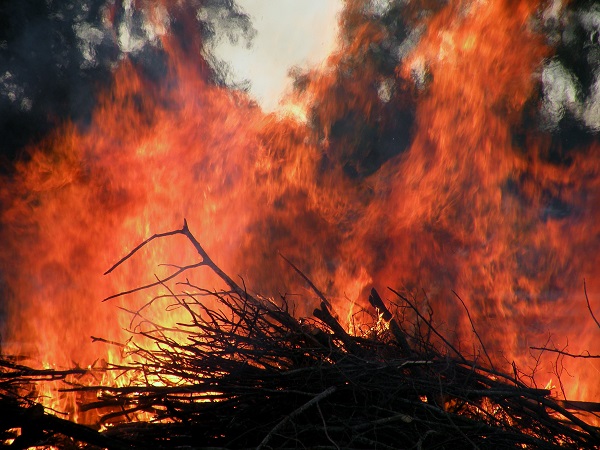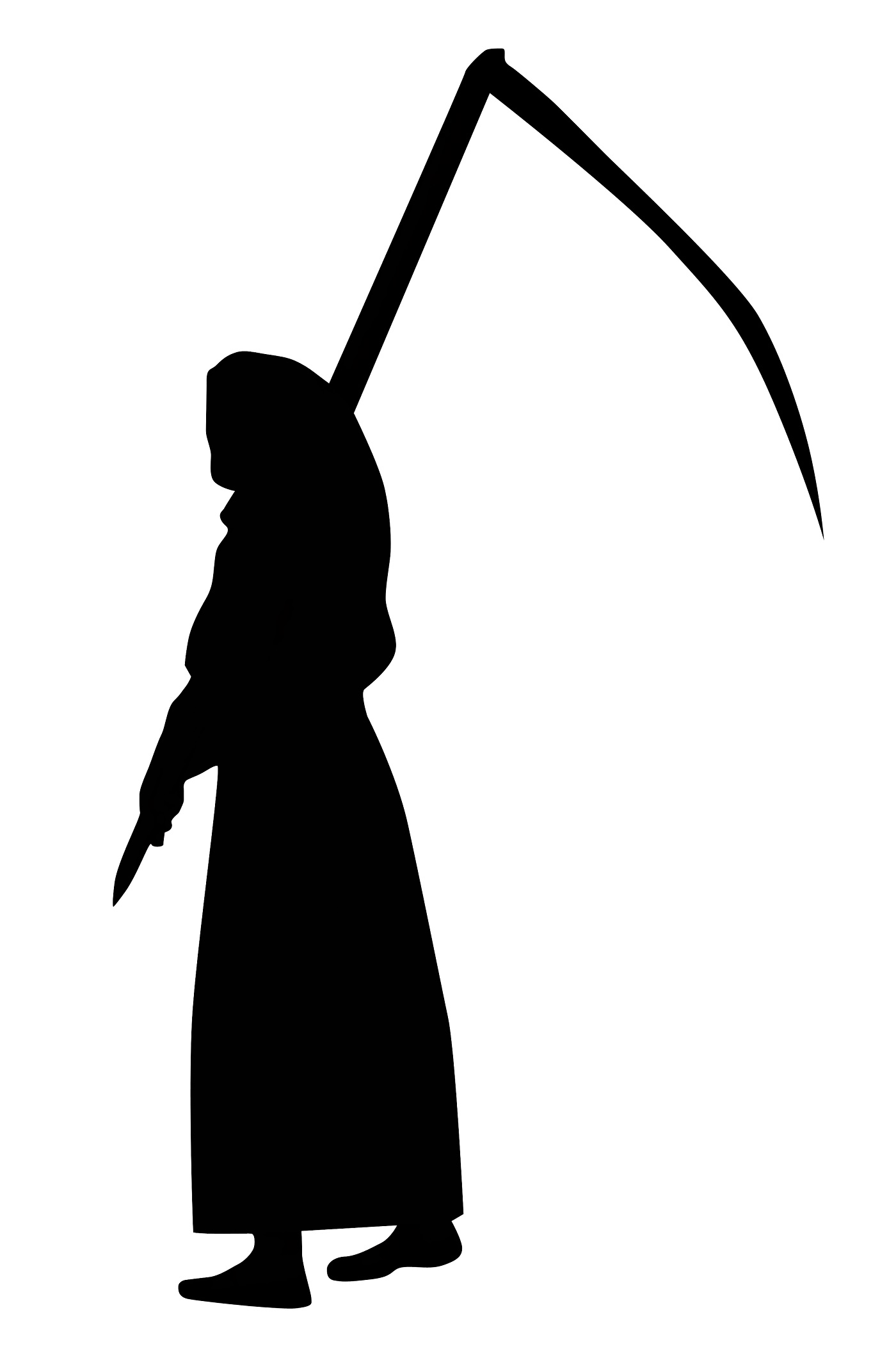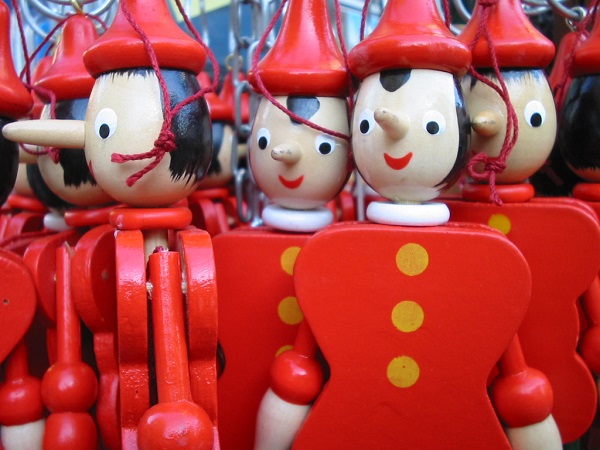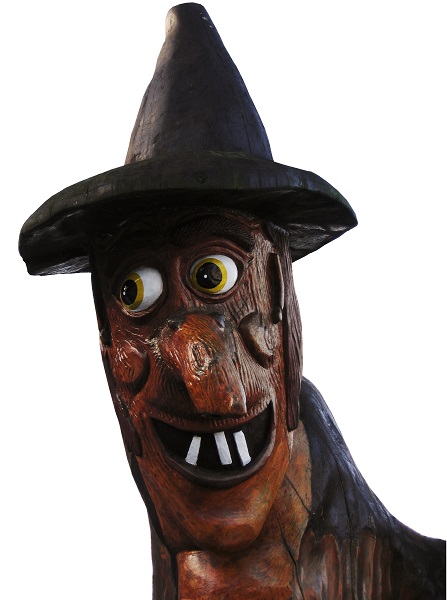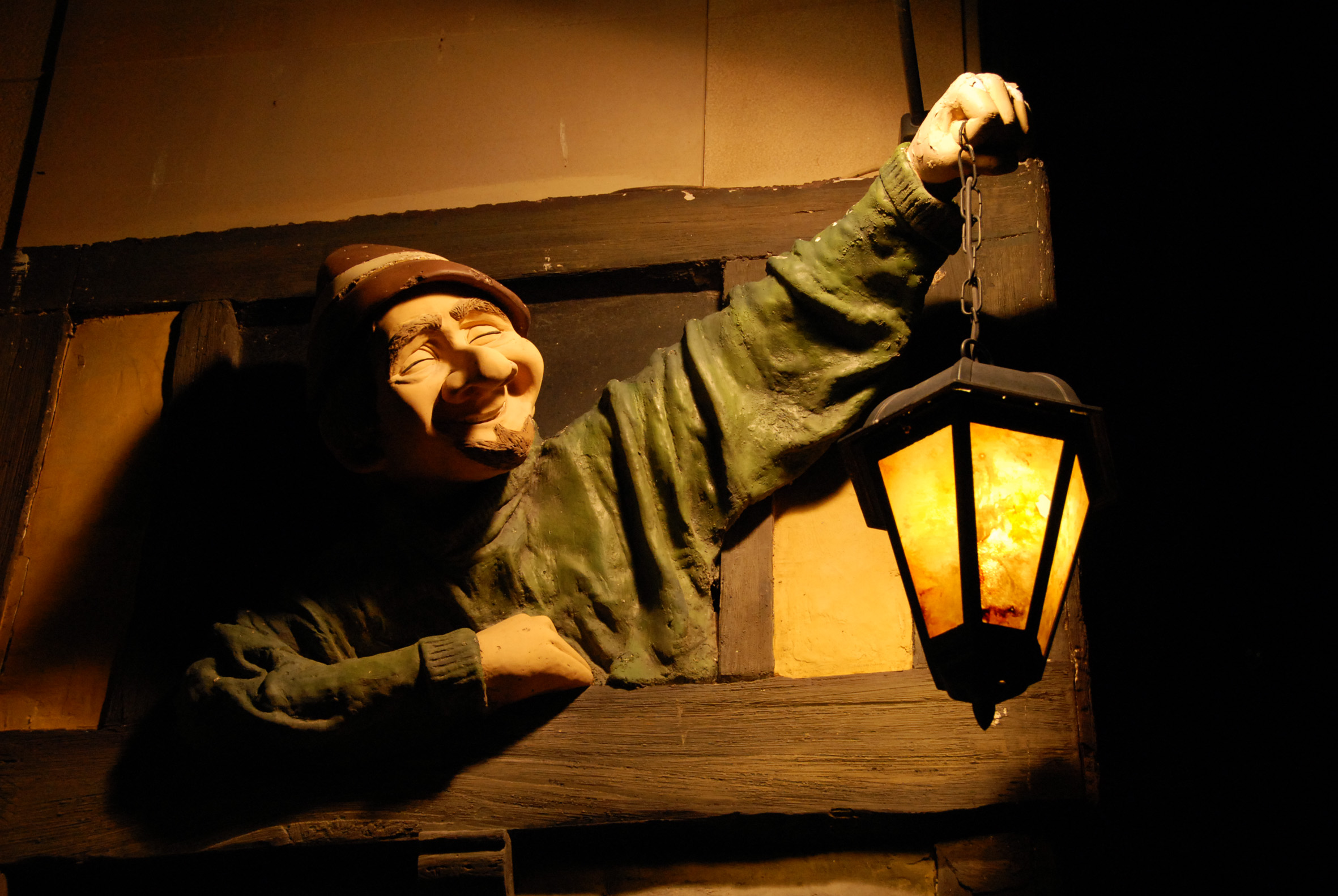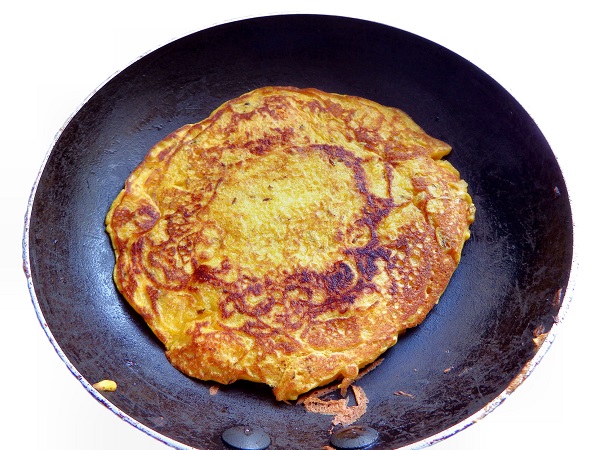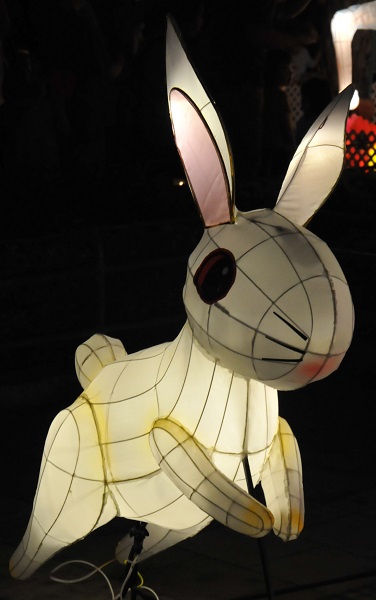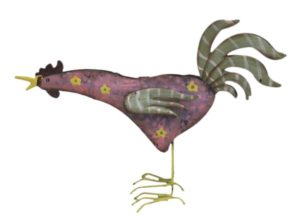The Water Snake (Russian Fairy Tales) by W. R. S. RALSTON
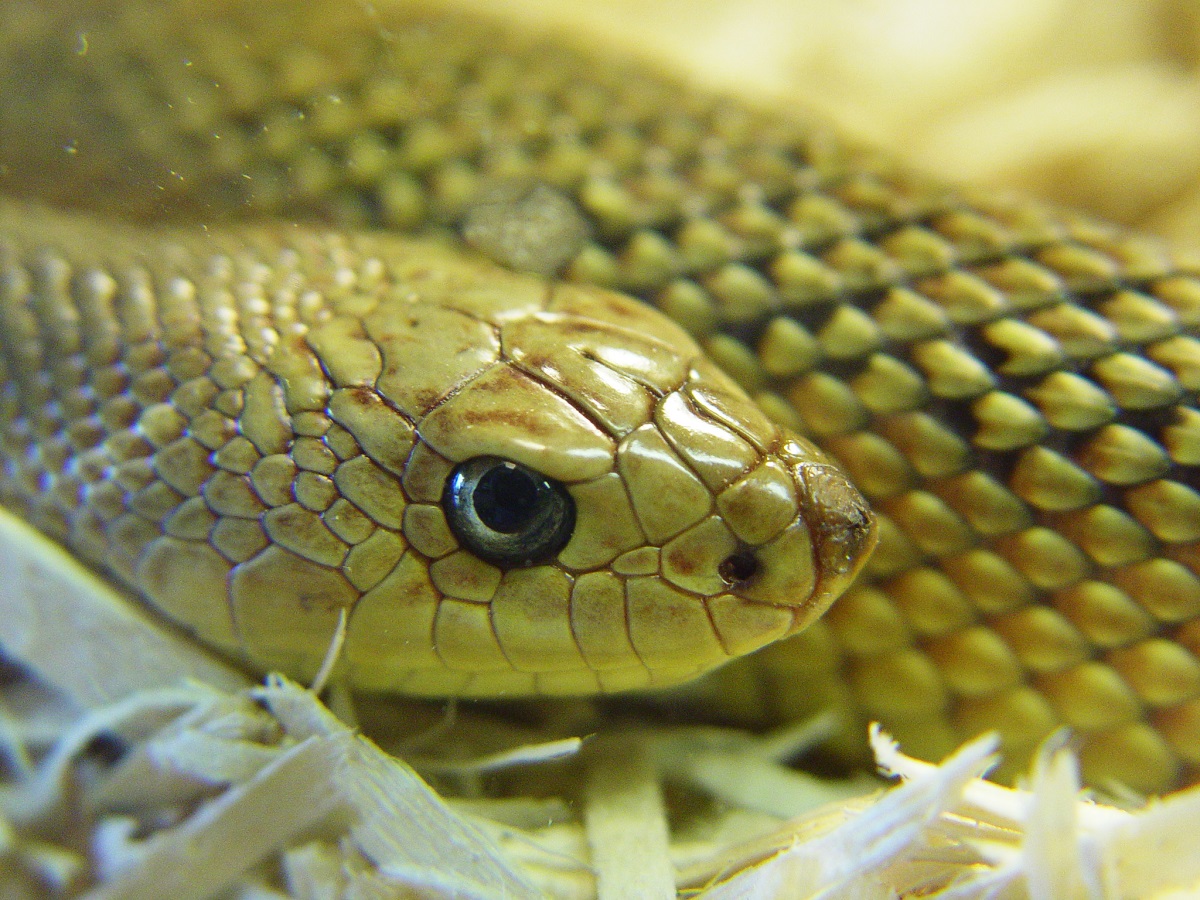
There was once an old woman who had a daughter; and her daughter went down to the pond one day to bathe with the other girls. They all stripped off their shifts, and went into the water. Then there came a snake out of the water, and glided on to the daughter’s shift. After a time the girls all came out, and began to put on their shifts, and the old woman’s daughter wanted to put on hers, but there was the snake lying on it. She tried to drive him away, but there he stuck and would not move. Then the snake said:
“If you’ll marry me, I’ll give you back your shift.”
Now she wasn’t at all inclined to marry him, but the other girls said:
“As if it were possible for you to be married to him! Say you will!” So she said, “Very well, I will.” Then the snake glided off from the shift, and went straight into the water. The girl dressed and went home. And as soon as she got there, she said to her mother,
“Mammie, mammie, thus and thus, a snake got upon my shift, and says he, ‘Marry me or I won’t let you have your shift;’ and I said, ‘I will.’”
“What nonsense are you talking, you little fool! as if one could marry a snake!”
And so they remained just as they were, and forgot all about the matter.
A week passed by, and one day they saw ever so many snakes, a huge troop of them, wriggling up to their cottage. “Ah, mammie, save me, save me!” cried the girl, and her mother slammed the door and barred the entrance as quickly as possible. The snakes would have rushed in at the door, but the door was shut; they would have rushed into the passage, but the passage was closed. Then in a moment they rolled themselves into a ball, flung themselves at the window, smashed it to pieces, and glided in a body into the room. The girl got upon the stove, but they followed her, pulled her down, and bore her out of the room and out of doors. Her mother accompanied her, crying like anything.
They took the girl down to the pond, and dived right into the water with her. And there they all turned into men and women. The mother remained for some time on the dike, wailed a little, and then went home.
Three years went by. The girl lived down there, and had two children, a son and a daughter. Now she often entreated her husband to let her go to see her mother. So at last one day he took her up to the surface of the water, and brought her ashore. But she asked him before leaving him,
“What am I to call out when I want you?”
“Call out to me, ‘Osip, [Joseph] Osip, come here!’ and I will come,” he replied.
Then he dived under water again, and she went to her mother’s, carrying her little girl on one arm, and leading her boy by the hand. Out came her mother to meet her—was so delighted to see her!
“Good day, mother!” said the daughter.
“Have you been doing well while you were living down there?” asked her mother.
“Very well indeed, mother. My life there is better than yours here.”
They sat down for a bit and chatted. Her mother got dinner ready for her, and she dined.
“What’s your husband’s name?” asked her mother.
“Osip,” she replied.
“And how are you to get home?”
“I shall go to the dike, and call out, ‘Osip, Osip, come here!’ and he’ll come.”
“Lie down, daughter, and rest a bit,” said the mother.
So the daughter lay down and went to sleep. The mother immediately took an axe and sharpened it, and went down to the dike with it. And when she came to the dike, she began calling out,
“Osip, Osip, come here!”
No sooner had Osip shown his head than the old woman lifted her axe and chopped it off. And the water in the pond became dark with blood.
The old woman went home. And when she got home her daughter awoke.
“Ah! mother,” says she, “I’m getting tired of being here; I’ll go home.”
“Do sleep here to-night, daughter; perhaps you won’t have another chance of being with me.”
So the daughter stayed and spent the night there. In the morning she got up and her mother got breakfast ready for her; she breakfasted, and then she said good-bye to her mother and went away, carrying her little girl in her arms, while her boy followed behind her. She came to the dike, and called out:
“Osip, Osip, come here!”
She called and called, but he did not come.
Then she looked into the water, and there she saw a head floating about. Then she guessed what had happened.
“Alas! my mother has killed him!” she cried.
There on the bank she wept and wailed. And then to her girl she cried:
“Fly about as a wren, henceforth and evermore!”
And to her boy she cried:
“Fly about as a nightingale, my boy, henceforth and evermore!”
“But I,” she said, “will fly about as a cuckoo, crying ‘Cuckoo!’ henceforth and evermore!”
[Stories about serpent-spouses are by no means uncommon, but I can find no parallel to the above so far as the termination is concerned. Benfey quotes or refers to a great number of the transformation tales in which a husband or a wife appears at times in the form of a snake (Panchatantra, i. pp. 254-7 266-7). Sometimes, when a husband of this kind has doffed his serpent’s skin, his wife seizes it, and throws it into the fire. Her act generally proves to be to her advantage, as well as to his, but not always. On a story of this kind was doubtless founded the legend handed down to us by Appuleius of Cupid and Psyche. Among its wildest versions are the Albanian “Schlangenkind” (Hahn, No. 100), a very similar Roumanian tale (Ausland 1857, No. 43, quoted by Benfey), the Wallachian Trandafíru (Schott, No. 23, in which the husband is a pumpkin (Kürbiss) by day), and the second of the Servian tales of the Snake-Husband (Vuk Karajich, No. 10).]
The snakes which figure in this weird story, the termination of which is so unusually tragic, bear a strong resemblance to the Indian Nágas, the inhabitants of Patala or the underground world, serpents which take at will the human shape and often mix with mortals. They may, also, be related to the mermen and mermaids of the sea-coasts, and to the similar beings with which, under various names, tradition peoples the lakes, and streams, and fountains of Europe. The South-Russian peasantry have from immemorial times maintained a firm belief in the existence of water-nymphs, called Rusalkas, closely resembling the Nereids of Modern Greece, the female Nixies of the North of Europe, and throughout the whole of Russia, at least in outlying districts, there still lingers a sort of cultus of certain male water-sprites who bear the name of Vodyanies, and who are almost identical with the beings who haunt the waters of various countries—such as the German Nix, the Swedish Nek, the Finnish Näkke, etc.
In the Skazkas we find frequent mention of beauteous maidens who usually live beneath the wave, but who can transform themselves into birds and fly wherever they please. We may perhaps be allowed to designate them by the well-known name of Swan-Maidens, though they do not always assume, together with their plumage-robes, the form of swans, but sometimes appear as geese, ducks, spoonbills, or aquatic birds of some other species. They are, for the most part, the daughters of the Morskoi Tsar, or Water King—a being who plays an important part in Slavonic popular fiction. He is of a somewhat shadowy form, and his functions are not very clearly defined, for the part he usually fills is sometimes allotted to Koshchei or to the Snake, but the stories generally represent him as a patriarchal monarch, living in subaqueous halls of light and splendor, whence he emerges at times to seize a human victim. It is generally a boy whom he gets into his power, and who eventually obtains the hand of one of his daughters, and escapes with her to the upper world, though not without considerable difficulty. Such are, for instance, the leading incidents in the following skazka, many features of which closely resemble those of various well-known West-European folk-tales.
If you liked this story, leave me a comment down below. Join our Facebook community. And don’t forget to Subscribe!
You might also enjoy other stories by W. R. S. Ralston
